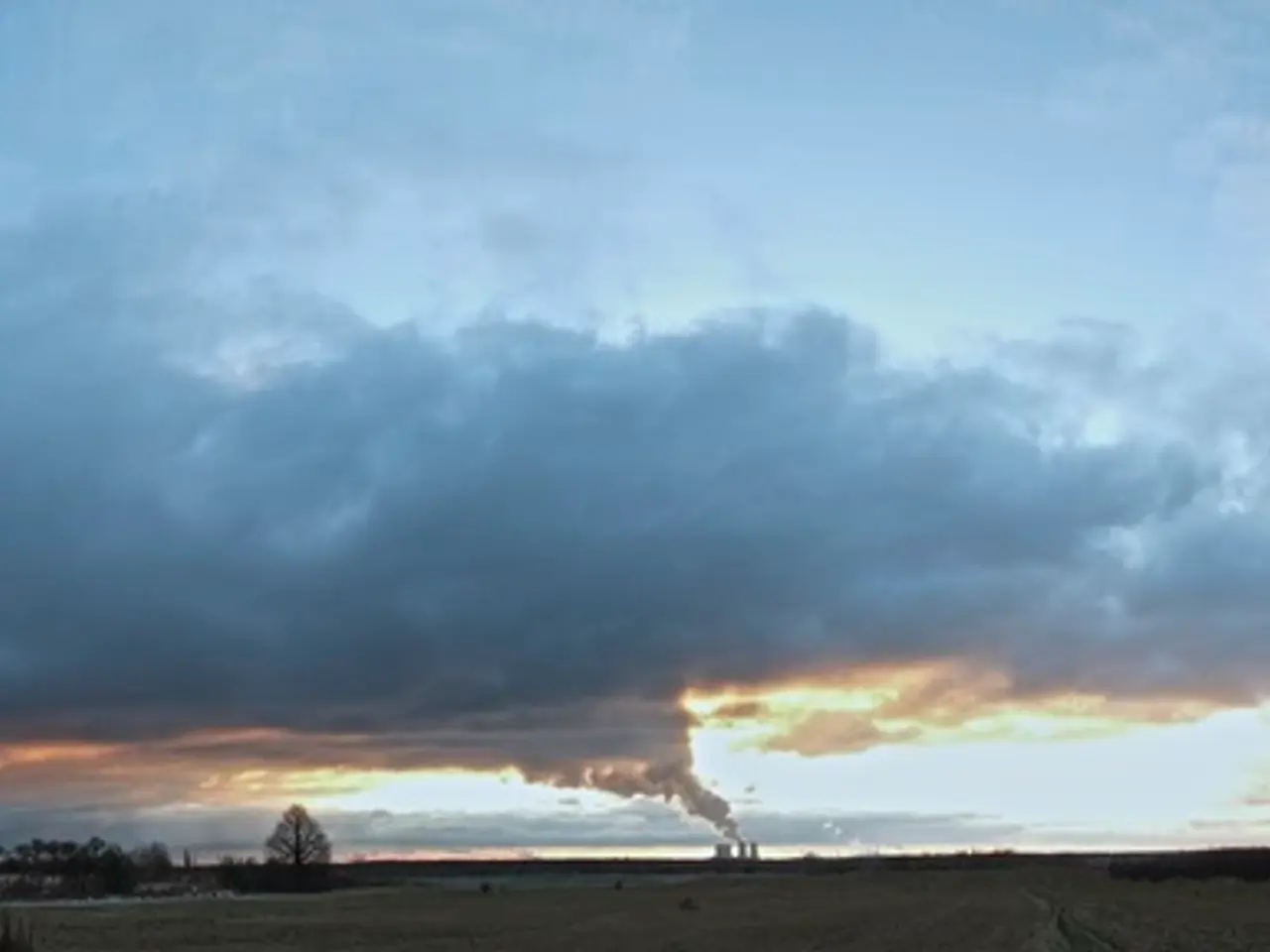Intersection of Extraterrestrial Life and Christian Theology
In an intriguing turn of events, Dr. Andrew Davison, a religious scholar, dived headfirst into the deep end of the universe with NASA's backing. His mission? To explore how humanity might react to the jaw-dropping discovery of non-human intelligent life, all while lounging at Princeton University's Center for Theological Inquiry.
As one of the 24 experts involved in this NASA-funded project, Davison focused on the mind-boggling existential questions from a theological lens, particularly examining the connections between astrobiology and Christianity. He pondered how followers of major religions might respond to the alien greeting and whether those without religious ties might seek solace in religious teachings.
With a book titled "Astrobiology and Christian Doctrine" to his name, Davison graced the pages of science and theology enthusiasts alike by sharing his insights and experiences gathered during the, ahem, outer- space expedition.
During a juicy tête-à-tête with Anthony Baker, this Starbridge Professor in Theology and Natural Sciences at the University of Cambridge spilled the beans on his work and perspectives on the unsolved mysteries of the universe. The nitty-gritty of their conversation covered Davison's astrobiology and Christian doctrine journey, the pioneering chemist-turned-theologian's take on the potential theological implications of discovering extraterrestrial life, and a whole lot more.
Davison doesn't shy away from controversy, talking turkey about the impact extraterrestrial life might have on Christian theological understandings in areas like creation, sin, salvation, and eschatology. He acknowledges that while the discovery might not lead to immediate doctrinal chaos, it could certainly stir up deeper theological contemplations, especially in Christology.
Delving deeper into his theological interests, Davision also sheds light on the fascinating interconnectedness of Christian doctrines and their relevance in everyday life and other academic fields. He doesn't forget to touch on the importance of scriptural reflections in the faith journey of believers and the beautiful symphony of faith and everyday life.
With his foot firmly planted in both the scientific and theological worlds, Davison brings a unique perspective to the age-old debate between science and faith. His work in astrobiology and Christian doctrine presents a fresh take on how scientific advancements can both enrich and challenge established religious understandings.
Historically, Christian theologians have been no strangers to the concept of non-human intelligence. In fact, this topic has been a subject of contemplation and writing among theologians since the 15th century. So, the idea that theology is only now grappling with the implications of potential discoveries in astrobiology is a bit of a misconception.
In the event of stumbling upon non-human intelligent life, a ginormous chunk of the population is expected to rely heavily on their religious beliefs for guidance and understanding. Davison suggests that religion will play a pivotal role in helping people make sense of such a monumental discovery and its implications for humanity's understanding of the universe and our place in it.
Lastly, Davison discusses the concept of multiplicity in the context of theology and the discovery of extraterrestrial life. He argues that the vastness and diversity of the universe, if anything, reflects the plenitude and splendor of God. From this perspective, the existence of multiple forms of life throughout the universe would be consistent with and even expected within Christian theology.
Dr. Andrew Davison's insights serve as a beacon shining light on the evolving landscape of theology in the context of contemporary scientific developments. His unique approach to integrating science and theology offers a fresh perspective on how religious beliefs and practices can adapt and thrive in an increasingly complex world.
Oh, and before we forget, the Princeton University's Center of Theological Inquiry (CTI) sure did get a cool billion dollars from NASA in 2014 to delve into the wasteland of space for signs of life beyond our humble abode, Earth. They aimed to investigate how the world's major religions might respond to undeniable evidence of life beyond Earth, especially in light of numerous UFO sightings. #scienceandconspiracytheories #NASAwhodat
Astrobiology, a fantabulous interdisciplinary field of science combining astronomy, biology, geology, and physics, is all about the hunt for life beyond our little blue dot. So, while you're out there contemplating the mysteries of the universe, remember to tip your hat to Dr. Andrew Davison for keeping the human spirit (and faith) in space, one theological question at a time! #mindblown #Vulcanology #Godzilla
- Dr. Andrew Davison's work in astrobiology and Christian doctrine presents a unique perspective on how scientific advancements can both enrich and challenge established religious understandings, particularly regarding extraterrestrial life.
- With his book, "Astrobiology and Christian Doctrine," Davison delves into the profound questions surrounding the potential discovery of non-human intelligent life and its implications for major religions, including Christianity.
- In the event of encountering extraterrestrial life, Davison suggests that religious beliefs will play a significant role in helping people make sense of the monumental discovery and its implications for our understanding of the universe.
- With a grant of a cool billion dollars from NASA, Princeton University's Center for Theological Inquiry has embarked on an intriguing mission, investigating how the world's major religions, including UFO phenomena and alien encounters, might respond to undeniable evidence of life beyond Earth.








